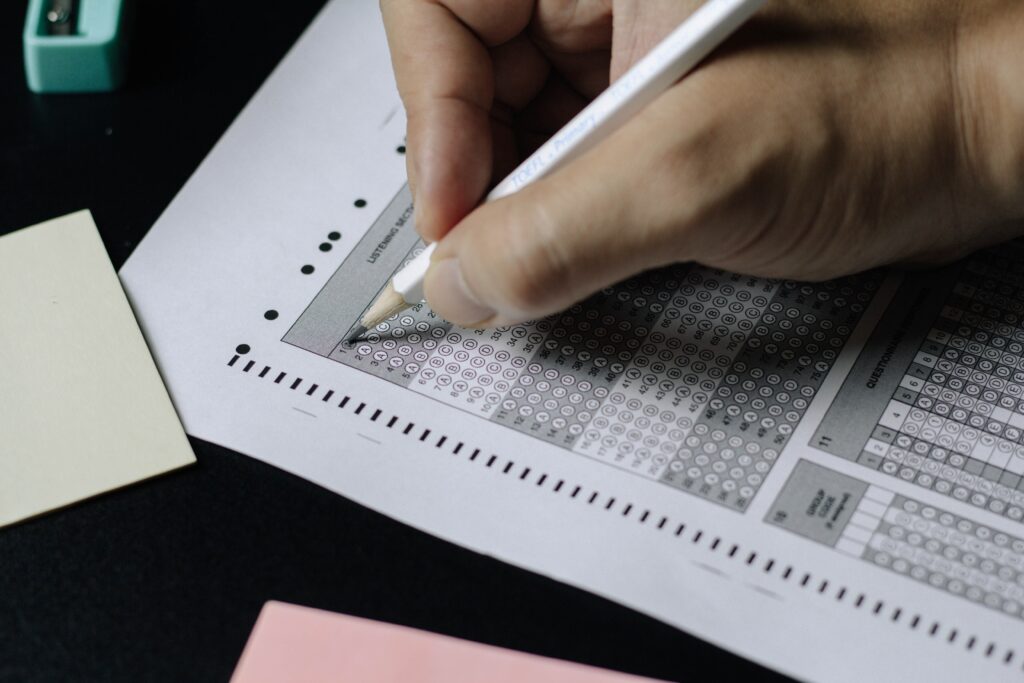
Table of Contents
How to Complete NEET Syllabus in 1 Month
Did you know that the National Eligibility cum Entrance Test (NEET) is one of the most competitive exams in India, with over 16 lakh applicants every year? If you are one of them, you might be wondering how to prepare for this exam in just one month. Is it even possible? Well, the answer is yes, if you follow some smart strategies and tips that we are going to share with you in this blog.
NEET is a national-level entrance exam for admission to undergraduate medical courses in India. It covers three subjects: Physics, Chemistry, and Biology. The exam consists of 180 multiple-choice questions, with 45 questions from each subject. The total duration of the exam is 3 hours, and the maximum marks are 720. The exam is conducted by the National Testing Agency (NTA) in offline mode.
Preparing for NEET in one month is not an easy task, but it is not impossible either. You have to be focused, disciplined, and consistent in your study plan. You also have to be smart and selective in choosing the right study material, revision techniques, and practice methods. In this blog, we will guide you through the steps to complete the NEET syllabus in one month and ace the exam. Let’s get started!
How to Create a Timetable for NEET Preparation in 1 Month
The first step to complete the NEET syllabus in one month is to create a realistic and effective timetable. A timetable will help you organize your time, prioritize your tasks, and track your progress. Here are some tips to create a timetable for NEET preparation in one month: –
1- Divide your time into four slots: morning, afternoon, evening, and night.
2- Allocate each slot to a different subject, and rotate them every day. For example, you can study Physics in the morning, Chemistry in the afternoon, Biology in the evening, and revise in the night.
3- Dedicate at least 3 hours to each subject every day. Within each subject, divide your time into two parts: theory and numericals.
4- Spend 60% of your time on theory and 40% on numericals. For Biology, spend 80% of your time on theory and 20% on diagrams.
5- Make sure you cover the entire syllabus of each subject in the first 25 days. Leave the last 5 days for revision and mock tests. You can use the NEET syllabus provided by the NTA as a reference.
6- Follow the NCERT books for all the subjects, as they are the best source of study material for NEET. You can also refer to some other books for additional practice and concepts, such as HC Verma for Physics, OP Tandon for Chemistry, and Trueman for Biology.
7- Stick to your timetable and avoid any distractions or procrastination. Use a planner or an app to keep track of your daily goals and achievements.
8- Reward yourself for completing your tasks and motivate yourself to do better.
Here is a sample timetable for NEET preparation in one month that you can follow or modify according to your convenience:
| TIME | Monday | Tuesday | Wednesday | Thursday | Friday | Saturday | Sunday |
| 6:00 am – 9:00 am | Physics | Chemistry | Biology | Physics | Chemistry | Biology | Revision |
| 9:00 am – 10:00 am | Breakfast | Breakfast | Breakfast | Breakfast | Breakfast | Breakfast | Breakfast |
| 10:00 am – 1:00 pm | Chemistry | Biology | Physics | Chemistry | Biology | Physics | Revision |
| 1:00 pm – 2:00 pm | Lunch | Lunch | Lunch | Lunch | Lunch | Lunch | Lunch |
| 2:00 pm – 5:00 pm | Biology | Physics | Chemistry | Biology | Physics | Chemistry | Revision |
| 5:00 pm – 6:00 pm | Break | Break | Break | Break | Break | Break | Break |
| 6:00 pm – 9:00 pm | Revision | Revision | Revision | Revision | Revision | Revision | Mock Test |
| 9:00 pm – 10:00 pm | Dinner | Dinner | Dinner | Dinner | Dinner | Dinner | Dinner |
| 10:00 pm – 11:00 pm | Relax | Relax | Relax | Relax | Relax | Relax | Relax |
NOTE:- You can also read “10 Powerful Tips on How to Complete Syllabus on Time”
How to Follow NCERT Textbooks for NEET Preparation
The second step to complete the NEET syllabus in one month is to follow the NCERT textbooks for all the subjects. NCERT books are the most reliable and authentic source of study material for NEET, as they cover the entire syllabus and are based on the latest exam pattern. Most of the questions in NEET are directly or indirectly based on the NCERT books, so you cannot afford to miss them. Here are some tips to follow the NCERT textbooks for NEET preparation:
1- Read the NCERT books thoroughly and understand the concepts, facts, and diagrams. Do not skip any topic or chapter, as every detail is important for NEET. Make notes of the important points and highlight the keywords.
2- Solve the NCERT exercises and examples at the end of each chapter. These will help you test your understanding and application of the concepts. You can also refer to the NCERT solutions provided by Vedantu, PW, for detailed explanations and tips.
3- Revise the NCERT books regularly and memorize the formulas, definitions, and diagrams. You can also use flashcards, mind maps, mnemonics, or other techniques to remember the information. You can also watch some NCERT videos by Unacademy for visual and audio learning.
4- Practice the NCERT questions and previous year papers to get familiar with the type and level of questions asked in NEET. You can also use some NCERT based mock tests by Embibe to check your preparation and performance.
Some of the important topics and chapters from each subject that are frequently asked in NEET are:
Physics: Kinematics, Laws of Motion, Work, Energy and Power, Rotational Motion, Gravitation, Thermodynamics, Oscillations and Waves, Electrostatics, Current Electricity, Magnetic Effects of Current, Electromagnetic Induction, Optics, Dual Nature of Matter and Radiation, Atoms and Nuclei, Electronic Devices.
Chemistry: Basic Concepts of Chemistry, Structure of Atom, Classification of Elements and Periodicity in Properties, Chemical Bonding and Molecular Structure, States of Matter, Thermodynamics, Equilibrium, Redox Reactions, Hydrogen, s-Block Elements, p-Block Elements, Organic Chemistry, Hydrocarbons, Environmental Chemistry, Solid State, Solutions, Electrochemistry, Chemical Kinetics, Surface Chemistry, General Principles and Processes of Isolation of Elements, Coordination Compounds, Haloalkanes and Haloarenes, Alcohols, Phenols and Ethers, Aldehydes, Ketones and Carboxylic Acids, Amines, Biomolecules, Polymers, Chemistry in Everyday Life.
Biology: Diversity in Living World, Structural Organisation in Animals and Plants, Cell Structure and Function, Plant Physiology, Human Physiology, Reproduction, Genetics and Evolution, Biology and Human Welfare, Biotechnology and Its Applications, Ecology and Environment.
How to Perform a Frequent Revision for NEET Preparation

The third step to complete the NEET syllabus in one month is to perform a frequent revision of all the topics and concepts. Revision is the key to success in any exam, as it helps you retain the information, recall it quickly, and apply it correctly. Here are some tips to perform a frequent revision for NEET preparation:
1- Revise the topics and concepts that you have studied on the same day, the next day, and the next week. This will help you consolidate your learning and avoid forgetting. You can use the Pomodoro technique to manage your revision time and breaks.
2- Revise the topics and concepts that you find difficult or confusing more often. You can also use some revision apps or websites to help you revise effectively and efficiently.
3- Revise the topics and concepts that are important for NEET and have a high weightage in the exam. You can use some, revision notes, important formulas.
Why is Revision Important for NEET Preparation?
Revision is the key to success in any exam, as it helps you retain the information, recall it quickly, and apply it correctly. Revision also helps you to:
1- Consolidate your learning and avoid forgetting
2- Identify and improve your strengths and problems.
3- Improve your speed, accuracy, and confidence
4- Familiarize yourself with the exam pattern, difficulty level, and types of questions
5- Avoid common mistakes and pitfalls in the exam
Therefore, revision is an essential part of your NEET preparation and should not be neglected or postponed.
When is the Best Time to Revise for NEET Preparation?
The best time to revise for NEET preparation depends on your personal preference, schedule, and learning style. However, some general tips to choose the best time to revise are:
Time of the day: Choose the time of the day when you are most active, focused, and alert. For most students, it is early morning, as the mind is fresh and receptive. You can use this time to revise the concepts, facts, and diagrams that are essential for NEET.
Time out: Take periodic breaks between your revision sessions to allow your memory to recover and absorb the information efficiently. You can use the [Pomodoro technique] to manage your revision time and breaks. This technique involves studying for 25 minutes, followed by a 5-minute break, and repeating this cycle four times, followed by a longer break of 15 to 30 minutes.
Learning to be practiced: Spread your learning across a period of time, rather than cramming it in one day. Instead of focusing on one topic or chapter for one complete day, switch topics throughout the day. When you revisit the same topic the next time, take a while to recall what you have learned and then go on to build new information on it. This will help you strengthen your memory and avoid interference.
How to Revise Effectively for NEET Preparation?

To revise effectively for NEET preparation, you need to follow some strategies and techniques that suit your learning style and goals. Here are some of the best revision techniques for NEET preparation:
Information makes sense: Make sure you understand the concepts and topics that you are revising, rather than just memorizing them. Try to interlink the concepts and topics with each other and with real-life examples. This will help you make sense of the information and remember it better.
Make notes: Making notes is one of the most effective ways to revise for NEET preparation. You can make notes of the important points, keywords, formulas, definitions, and diagrams from each chapter and topic. You can also use different colors, symbols, and diagrams to make your notes more attractive and organized. You can refer to the [NCERT books](https://unacademy.com/content/neet-ug/exam-tips/revision-techniques-for-effective-neet-preparation/) for all the subjects, as they are the best source of study material for NEET. You can also use some revision notes provided by BYJU’S for detailed explanations and tips.
Revise regularly: Revise the topics and concepts that you have studied on the same day, the next day, and the next week. This will help you consolidate your learning and avoid forgetting. You can also use flashcards, mind maps, mnemonics, or other techniques to remember the information. You can also watch some [NCERT videos] by Unacademy for visual and audio learning.
Solve mock tests and sample papers: Solving mock tests and sample papers is one of the best ways to revise for NEET preparation. It will help you practice solving previous year papers and mock tests to improve your speed, accuracy, and confidence. It will also help you familiarize yourself with the exam pattern, difficulty level, and types of questions. You can also use some [NCERT based mock tests] by Embibe to check your preparation and performance.
Learn from your mistakes: Analyze your strengths and weaknesses, identify your errors, and work on them. You can also use some [revision apps] or websites to help you revise effectively and efficiently. You can also seek feedback from your teachers, mentors, or peers and improve your performance.
Conclusion
We hope you found this post to be beneficial and interesting. If you follow these steps, you can surely perform a frequent revision for NEET preparation and ace the exam. Remember, nothing is impossible if you have the determination, discipline, and dedication. So, don’t give up and keep working hard. All the best for your NEET 2024!






